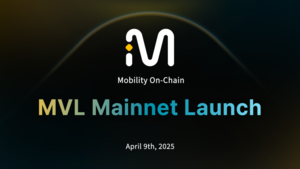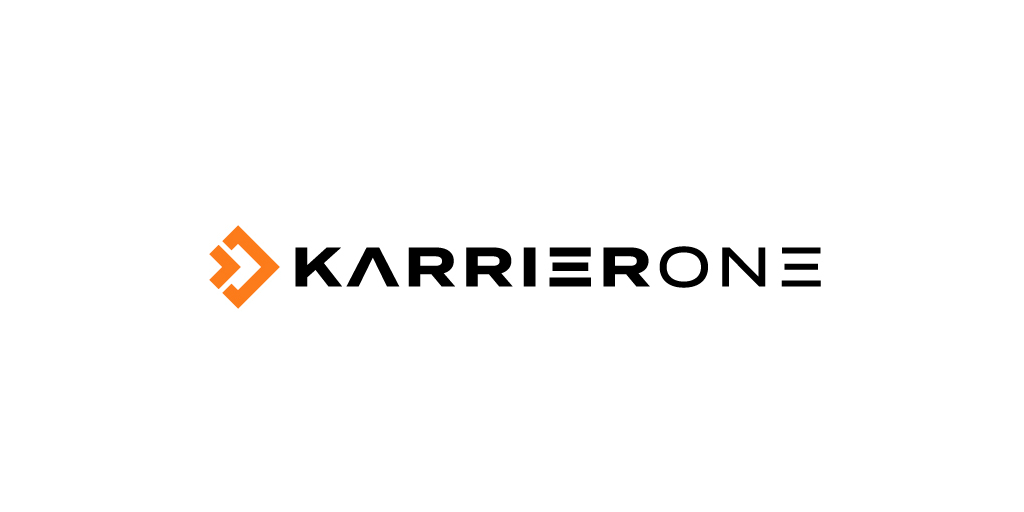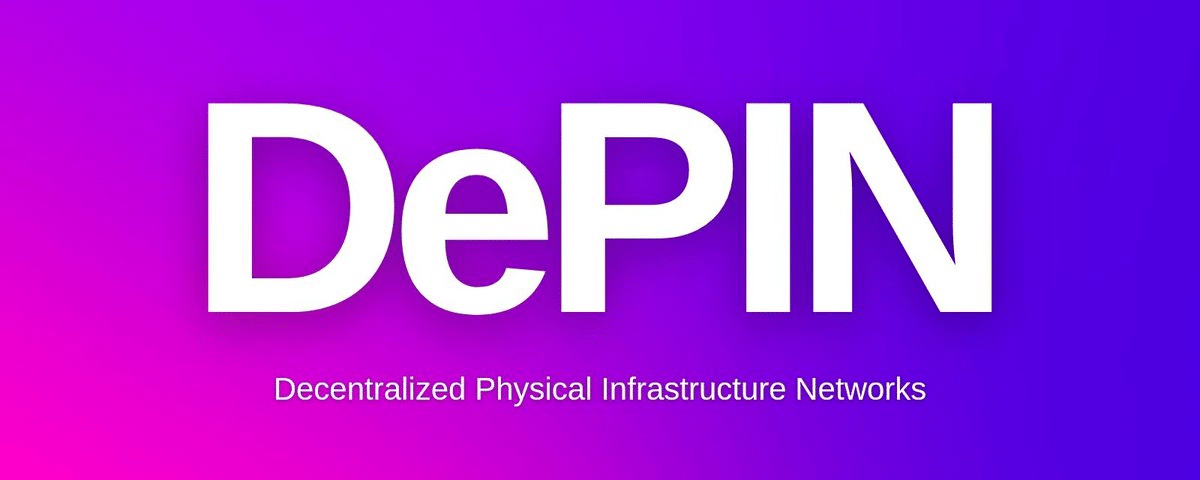Roam's DePIN Project Sees Rapid Expansion in Decentralized WiFi Network Nodes
Monday, September 9, 2024 9:03 AM
3,019

Roam’s decentralized WiFi network, DePIN, has experienced rapid growth in the number of nodes, surpassing 569,463 within just 12 days from reaching 500,000 on August 28. The total check-ins have exceeded 22.7 million, with over 600,000 registered users on the Roma app. Roam offers enterprise-grade WiFi services globally, making it a significant player in the decentralized WiFi network space.
Related News

4 days ago
DIMO Unveils Enhanced Developer Console with New Features and Decentralization FocusDIMO has recently announced an exciting update to its Developer Console, marking a significant evolution since its initial launch on August 8, 2024. This update, known as DIMO Build, not only refreshes the branding with a new visual identity but also enhances the user experience by providing greater freedom and flexibility for developers. The Console now features a user-centric design that aligns with future expansion projects, including webhooks and low-code tools, ensuring that developers can build with less distraction and more focus on their projects.
One of the standout features of the new Console is the integration of social logins, which streamlines operations by consolidating login processes directly with DIMO Auth Servers. This update includes the addition of Apple logins, catering to users of the DIMO Mobile app. Furthermore, the login flow has been re-engineered to allow users to opt for email OTP login if they encounter compatibility issues with passkeys. This flexibility is aimed at reducing friction in the user experience, allowing developers to spend less time on signing transactions and more on building.
In addition to these enhancements, DIMO has embraced decentralization by integrating developer license information directly into the Identity API, mapping it to on-chain data. This shift eliminates reliance on off-chain databases, promoting transparency and reducing discrepancies. The updated Console also introduces a comprehensive vehicle list feature, providing insights into license details, including on-chain vehicle IDs. To support developers further, DIMO has established a dedicated support pipeline, ensuring that developers can easily connect with the engineering team behind the Console. Overall, these updates signify DIMO's commitment to fostering a more open and efficient development environment in the decentralized space.

10 days ago
CUDOS March 2025 Recap: Record Compute Growth and Strategic PartnershipsMarch 2025 proved to be a pivotal month for CUDOS, showcasing significant advancements in the CUDOS Intercloud and ASI ecosystems. The month was marked by record-breaking compute growth, with 250,660 compute hours delivered, representing the highest single-month total to date. This surge in demand, particularly from AI and Web3 workloads, contributed to a monthly revenue increase of 30%, reaching $180,000. The total ecosystem revenue surpassed $1.5 million, highlighting a robust shift towards distributed computing, with a total of 1.6 million compute hours logged, up 17% from February. The user base also expanded to 17,000, indicating a growing adoption among developers and node operators seeking alternatives to centralized cloud solutions.
The collaboration between CUDOS and the ASI Alliance, which includes Fetch.ai, SingularityNET, and Ocean Protocol, has also matured over the past year. CUDOS has successfully integrated into the ASI stack, serving as the distributed compute layer, and completed the token migration with $FET, enabling wallet-native usage. This partnership is aimed at building a distributed, privacy-first AI future, emphasizing the importance of computing without compromise. The integration of CUDOS with ASI reflects a commitment to advancing distributed intelligence and self-sovereign AI architectures.
In addition to these developments, CUDOS launched a partnership with Rainfall, a privacy-preserving personal AI platform, enhancing node deployment integration. This collaboration allows node operators within the Rainfall ecosystem to utilize CUDOS Intercloud for scalable, low-cost compute solutions. Furthermore, CUDOS introduced a referral program to incentivize users to share their network, offering commissions in $FET for successful referrals. As demand for compute resources continues to rise, CUDOS is set to enhance its platform with new features, tutorials, and community support, paving the way for future innovations in distributed computing.

10 days ago
DoubleZero and Roam: Pioneering the DePIN Landscape on SolanaIn a significant development within the DePIN ecosystem, the DoubleZero Foundation has secured a remarkable investment of $28 million from top venture capital firms, including Dragonfly and Multicoin Capital. Founded by Austin Federa, who previously played a pivotal role at the Solana Foundation, DoubleZero aims to create a robust web3 infrastructure by addressing the challenges faced by current blockchain networks. The project is designed to enhance bandwidth and reduce latency, facilitating smoother operations for web3 applications. The investment signals strong support from the Solana ecosystem, indicating a collective effort to build a physical infrastructure network that can rival traditional web2 solutions.
Another noteworthy project, Roam, has emerged as a decentralized wireless network built on the Solana blockchain. Launched on March 6, Roam aims to provide seamless WiFi and eSIM connections globally, boasting over 2.3 million users and 2 million WiFi nodes across 190 countries. With a market capitalization exceeding $60 million, Roam utilizes blockchain technology to ensure secure connections and automatic network switching. Its innovative approach, combined with a strong incentive mechanism for users to share WiFi, positions Roam as a leading player in the DePIN space, drawing comparisons to Starlink for its ground-based communication solutions.
As of mid-March 2025, the DePIN ecosystem on Solana has flourished, with a market value surpassing $25 billion. This growth is attributed to Solana's technical advantages, such as high throughput and low transaction costs, making it an attractive platform for DePIN projects. The Solana Foundation's proactive support through funding and hackathons has further nurtured this ecosystem. With approximately 78 DePIN projects currently active on Solana, including notable names like Helium and Render Network, the platform is poised to lead the way in decentralized physical infrastructure, showcasing its potential to reshape the future of connectivity and data sharing in the blockchain space.

12 days ago
MVL Launches Mainnet to Revolutionize Mobility InfrastructureMVL, a leader in blockchain-based mobility solutions, has officially launched its mainnet on April 9, 2025, marking a significant advancement in its mission to create a value-sharing mobility ecosystem. Founded in 2018, MVL aims to ensure that drivers, riders, and service providers benefit equitably through blockchain technology. The new mainnet is built on Base Appchains, a Layer 3 app-specific rollup developed by the Coinbase Developer Platform, which allows MVL to operate independently without competing for resources. This setup provides MVL with enhanced scalability, faster transaction speeds, and a robust infrastructure, ensuring a seamless experience for users of its services, particularly the zero-commission ride-hailing platform, TADA.
The launch of the MVL mainnet is pivotal for the expansion of TADA, which has already established itself as the second leading ride-hailing service in Singapore and is set to enter the U.S. market through a partnership with Drivers Cooperative Colorado. This collaboration aims to introduce a zero-commission ride-sharing service in the U.S., leveraging TADA's technology and operational expertise. The integration of TADA's infrastructure onto the blockchain, referred to as DePIN (Decentralized Physical Infrastructure Network), enhances transparency and shifts control back to users, challenging traditional platform models that often prioritize corporate profits over user benefits.
In addition to TADA, MVL has launched 'Musubi', a digitized vehicle finance platform that connects ride-hailing drivers with investors. Musubi allows for the digitization of vehicle-related rights, providing real-time access to critical data such as vehicle location and performance metrics. CEO Kay Woo emphasized that the mainnet will unify MVL's services, fostering synergies across the ecosystem and driving further innovation in the mobility sector. With ongoing expansions and partnerships, MVL is poised to redefine the future of mobility through blockchain technology.

13 days ago
Karrier One Partners with AT&T to Enhance Wi-Fi Offload CapabilitiesKarrier One Inc., a leader in Web3-powered telecom solutions, has announced a significant partnership with AT&T Mobility LLC aimed at enhancing both domestic and international Wi-Fi offload capabilities. This collaboration is set to accelerate the adoption of decentralized physical infrastructure networks (DePIN) for next-generation wireless connectivity. By leveraging the Sui blockchain, this initiative will expand global Wi-Fi offload coverage, allowing users to enjoy seamless and secure connectivity in premium locations around the world.
Under the terms of the agreement, Karrier One will enable AT&T Mobility and its subscribers to access an expanded network of Wi-Fi offload locations utilizing Hotspot 2.0/Passpoint technology. This advancement is expected to reduce costs and improve network performance, ensuring that subscribers remain connected in areas where traditional cellular infrastructure may fall short. The initiative aligns with AT&T's ongoing commitment to enhancing network coverage and embracing innovative Web3-driven telecom solutions.
Samer Bishay, CEO and Co-Founder of Karrier One, emphasized the importance of alternative infrastructure models in the evolving telecom landscape. He stated that this partnership not only enhances connectivity but also shapes the future of decentralized telecom infrastructure, making networks more resilient and accessible. By combining licensed spectrum, Wi-Fi offload, and blockchain innovation, Karrier One and AT&T aim to revolutionize telecom infrastructure, ultimately improving user experiences and reducing operational costs for subscribers worldwide.

14 days ago
The Rise of Decentralized Physical Infrastructure Networks (DePINs) in CryptoDecentralized Physical Infrastructure Networks (DePINs) are rapidly emerging as a pivotal narrative in the cryptocurrency landscape. These networks encompass a variety of applications, including decentralized cloud storage, wireless networks, and peer-to-peer energy grids. The potential of DePINs extends beyond mere technological innovation; they promise to reshape daily life by enhancing the sharing economy, improving supply chain management, and fostering sustainable energy solutions. Despite their significance, awareness of DePINs remains limited within the crypto community, making it essential to highlight their transformative capabilities as we enter a new bull market.
At its core, DePIN refers to a decentralized approach to building and managing physical infrastructure, akin to Amazon Web Services (AWS) but without centralized control. By leveraging crowdsourced resources, DePIN projects can significantly reduce the costs associated with establishing extensive physical infrastructure. For instance, decentralized cloud storage solutions like Filecoin and Storj allow users to contribute their unused storage space in exchange for rewards, while projects like Helium incentivize individuals to share their internet bandwidth. This innovative model not only democratizes access to essential services but also fosters a more resilient and localized infrastructure.
Despite the promise of DePIN technology, several challenges must be addressed to ensure its successful implementation. Key hurdles include ensuring robust cybersecurity measures, achieving scalability, and navigating regulatory landscapes. However, exciting developments are on the horizon, such as advancements in security protocols and integration with the Internet of Things (IoT). As DePINs continue to evolve, they hold the potential to revolutionize how we interact with our physical environment, paving the way for a more efficient and user-centric infrastructure in the future.
Signup for latest DePIN news and updates